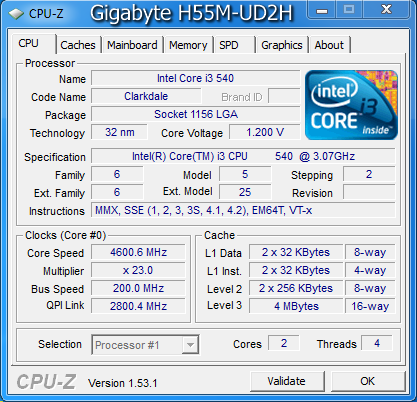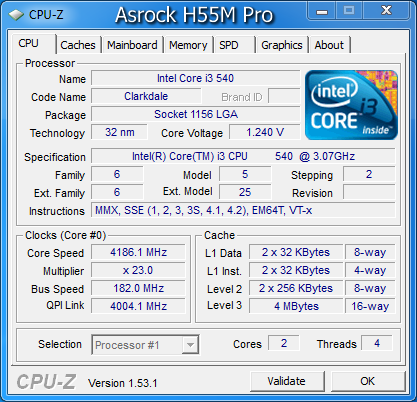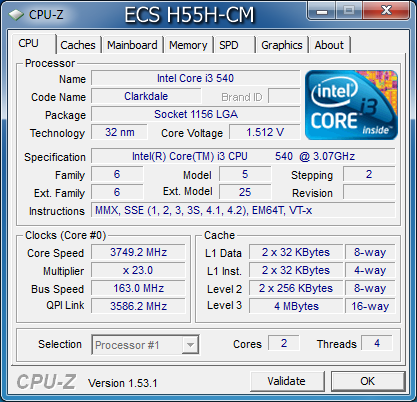Overclocking Results
Overclocking delivered a mixed bag of results, and while some things were to be expected, others were not. The Gigabyte H55M-UD2H, for example, effortlessly pushed the Core i3 540 processor to an impressive 4.60GHz on air cooling. This overclock proved to be rock solid and set a high benchmark for the other three H55 motherboards.

The Asrock H55M Pro was not quite as impressive. We found overclocking to be far more difficult with this motherboard, as even reaching our maximum stable overclock of 4.18GHz was a real challenge. Still, at over 4.0GHz this is a respectable result for an affordable MicroATX motherboard that will keep most Core i3 owners very happy.

Then we had the ECS H55H-CM, which provided a small degree of overclocking headroom pushing our Core i3 540 processor to 3.74GHz. This is almost 1GHz less than what the Gigabyte H55M-UD2H achieved, but by now you will be aware that these two motherboards are simply not in the same league.

Now, for something a little unexpected, the Asus P7H55-M Pro just didn't want to play ball when it came to overclocking. Typically when we do these roundups it is Asus who sets the bar high. They did so in our P55 roundup, but this time their P7H55-M Pro was a real let down as we kept running into an annoying bug.
So far we haven't been able to determine what is causing the overclocking issues with the P7H55-M Pro and at this stage we are looking to acquire a new board for further testing. The problem is whenever the CPU is pushed past 4.0GHz the system starts to shudder – by this we mean pause, constantly, while in Windows and it does so for a few seconds. The strange thing is the system never crashes and we can load Windows all the way to 4.60GHz!
In an effort to try and diagnose the problem we played with our hardware configuration by swapping a range of G.Skill, Corsair and OCZ memory modules, testing with different graphics cards and power supplies, and even using the Core i5 750 on this board. The problem would persist as soon as the overclock exceeded 4.0GHz. The board's BIOS was also upgraded to the latest 703 revision but so far we've had no luck identifying the problem.